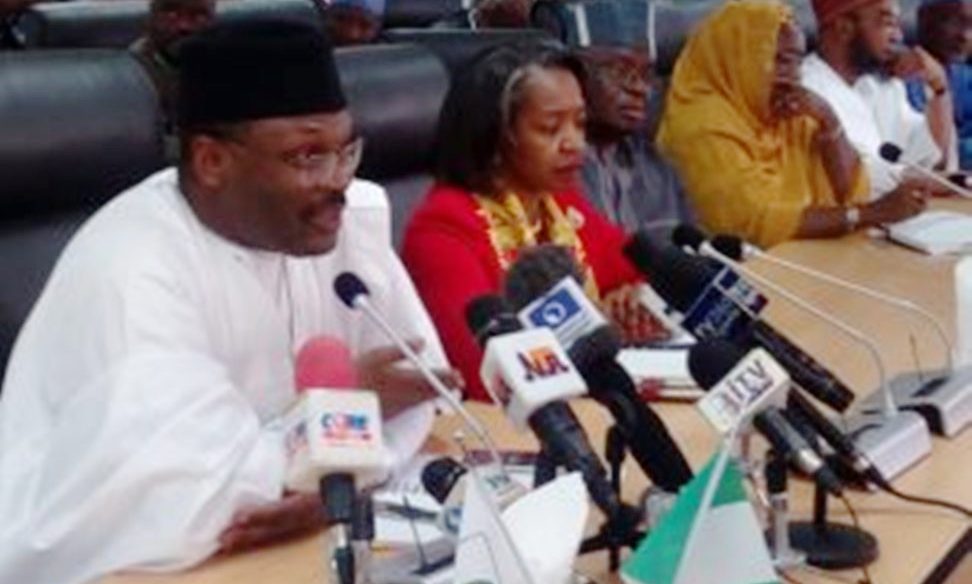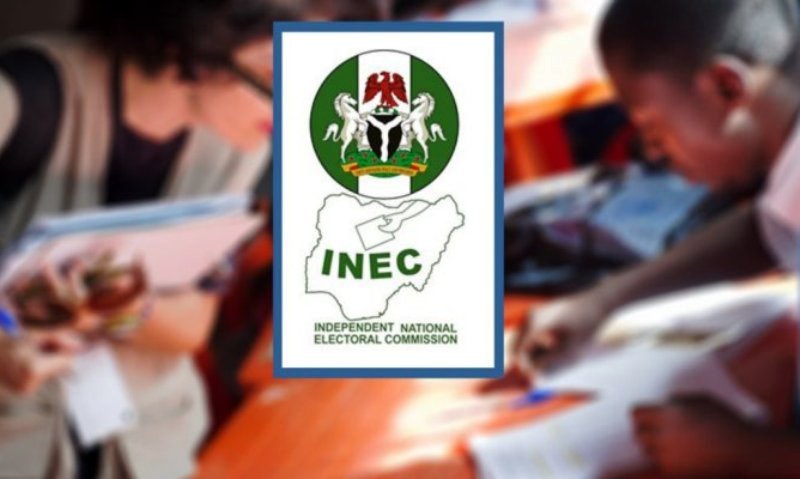The Independent National Electoral Commission (INEC) says it has acquired a new technology which it will introduce for the recommencement of continuous voter registration (CVR) exercise across the country.
TheNewsGuru.com (TNG) reports INEC Chairman, Prof. Mahmood Yakubu made this known on Thursday during a press conference at INEC’s Conference Hall Headquarters, Abuja.
He stated that the new technology is Android based and that the commission had been in a process of migrating to the INEC Voter Enrolment Device (IVED) from the old Direct Data Capture Machine (DDCM) that had been in use for about 10 years.
The INEC Chairman also revealed that in order to reduce crowding at registration centres, the Commission has built a new online registration portal that would enable new registrants to commence registration online and subsequently complete the capture of their biometric data at designated registration centres.
He stated that previously registered voters who wished to transfer their voting locations, apply for replacement of their PVCs or correct their personal information had to appear physically at the registration centres.
Prof Yakubu, at the press conference, stated that all these were part of three cardinal reasons why the CVR exercise could not start earlier.
The first, he said was the establishment of new systems that would ensure safer CVR exercise in the context of the COVID-19 pandemic.
“In this regard, the Commission is building a new online registration portal that would enable new registrants to commence registration online and subsequently complete the capture of their biometric data at designated registration centres. This is designed to reduce crowding. Through the online portal, they can schedule their visits to the registration centres to suit their convenience.
“Above all, a CVR Locator is integrated into the new portal which will enable online registrants to locate the nearest registration centre available to them to complete their registration.
“Previously, registered voters who wished to transfer their voting locations, apply for replacement of their PVCs or correct their personal information had to appear physically at the registration centres.
“The development of this portal, which is being done in-house by our engineers, has taken a little more time to complete than the Commission anticipated.
“The second reason is the Commission’s determination to expand voter access to Polling Units.
“You would all recall that recently the Commission embarked on a nationwide engagement with Nigerians in which we raised the fundamental issue of declining voter access to Polling Units across the country.
“The engagement clearly demonstrated that the existing Polling Units are inadequate. They were initially designed to cater for a projected 50 million voters but presently serve over 84 million voters.
“In addition, many of the Polling Units are inaccessible to voters, especially Persons With Disability (PWDs), and are not conducive to implementing the Commission’s election regulations, especially in the context of the COVID-19 pandemic.
“We are glad that most Nigerians agree with the Commission on this issue, and we have commenced a far-reaching programme of converting Voting Points and Voting Point Settlements into fullfledged Polling Units and relocating poorly situated Polling Units to better locations.
“The Commission needs more time to complete this exercise, so that the new Polling Units will be available for registrants to choose during the CVR exercise.
“Thirdly, the Commission has decided to introduce a new voter registration equipment and technology.
“The present generation of voter registration equipment, which the Commission introduced in 2011, is the Direct Data Capture Machine (DDCM). This is based on a laptop and a series of peripherals connected to it. In addition, it includes large powerpacks to power the laptops in the field.
“While the DDCMs have served the Commission well over the last 10 years, we believe that there are now more compact registration devices that will better serve Nigerians during the CVR exercise.
“The Commission is therefore migrating to the INEC Voter Enrolment Device (IVED), which is based on an Android tablet.
“The procurement of the new devices, the modification of the registration software by our in-house engineers to make it compatible with the Android Operating System, as well as integrating these with the online registration portal require a little more time.
“For instance, due to the COVID-19 pandemic, our partners abroad who manufacture the IVED hardware, are not operating at full capacity and the pandemic has also made the supply chain and delivery much slower,” Prof Yakubu said.


